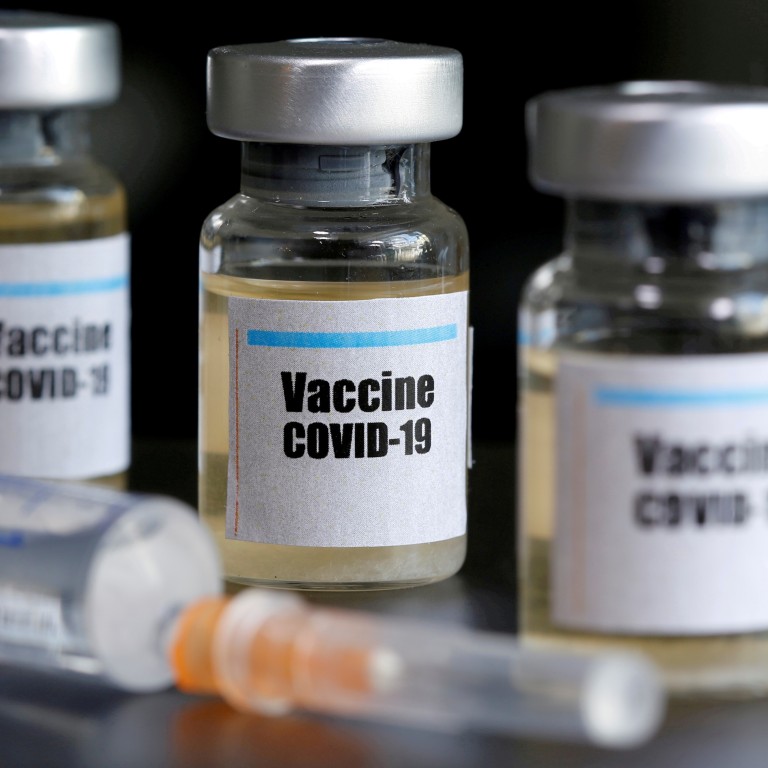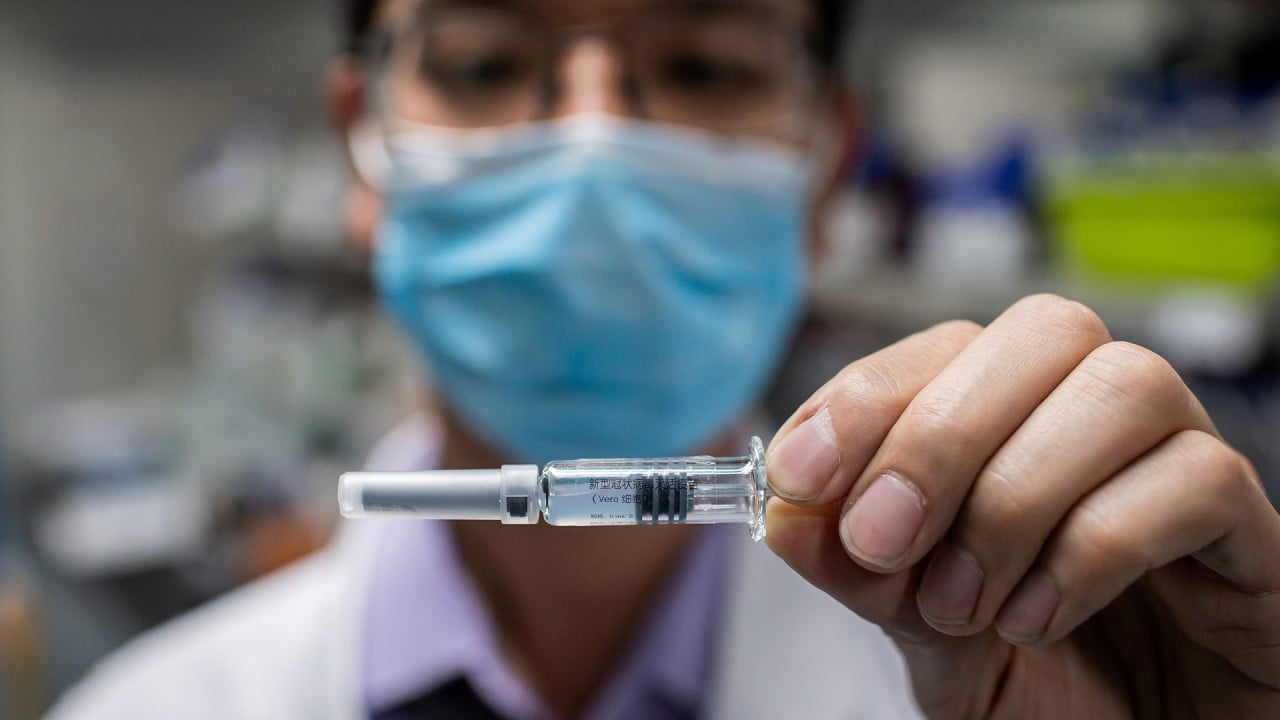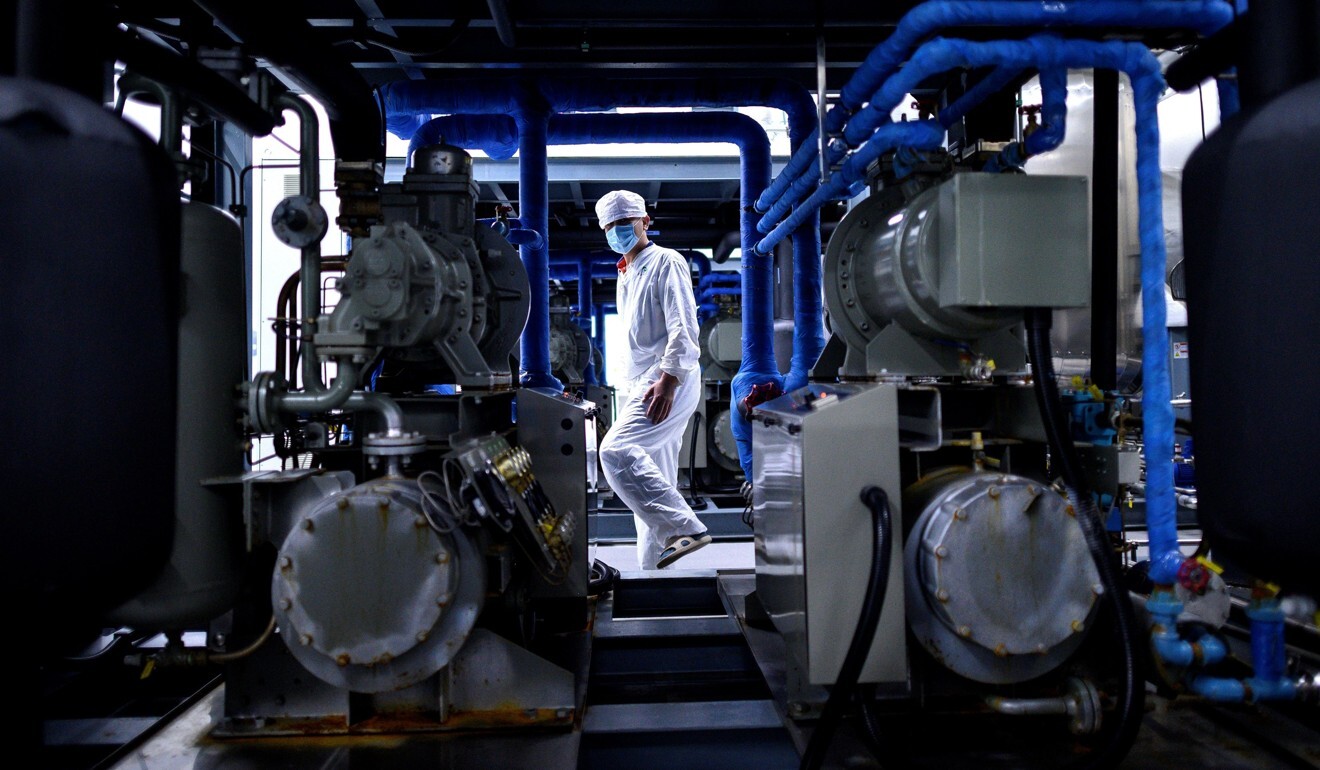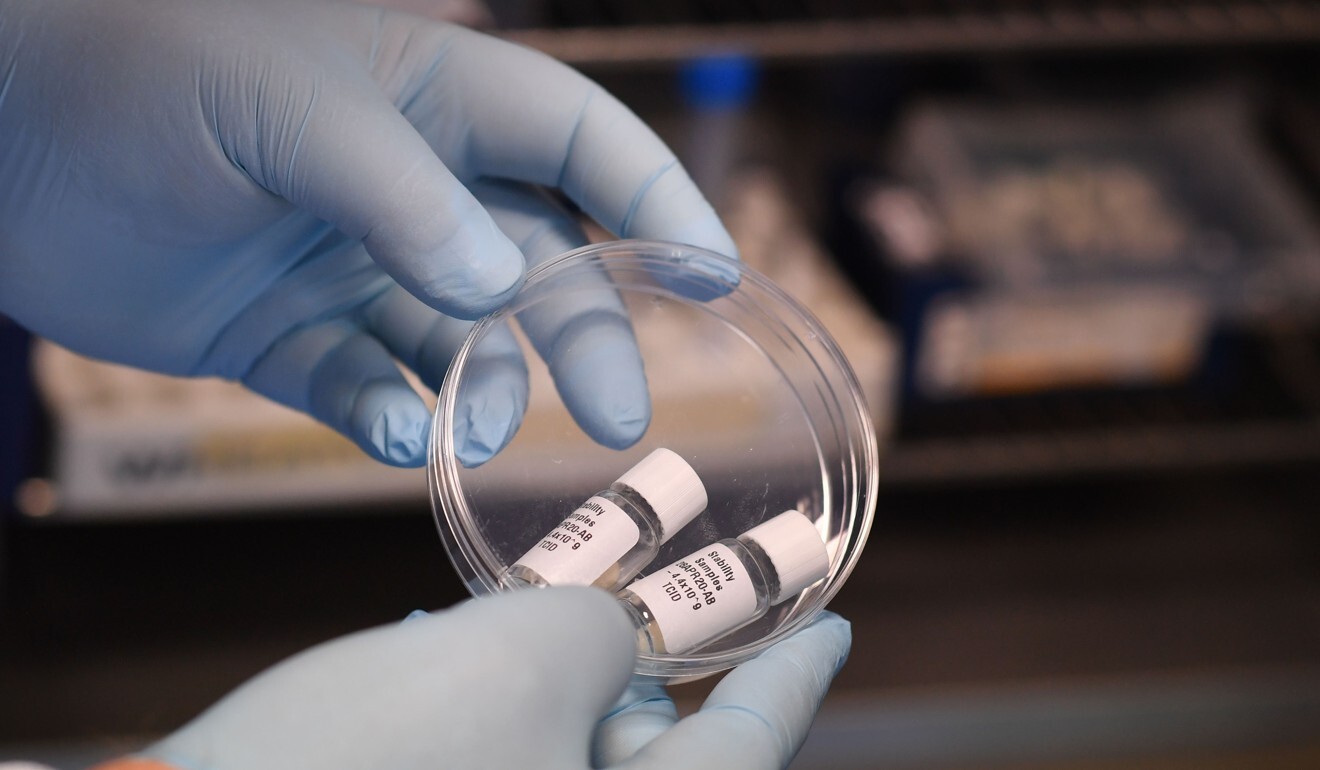
Politico | White House pressure for coronavirus vaccine raises risk US will approve one that doesn’t work
- Health experts fear regulators will be pushed to approve first candidate to show promise, without proof of effective, reliable protection
- Drug makers and agencies have already begun rewriting rules of vaccine research
This story is published in a content partnership with POLITICO. It was originally reported by Sarah Owermohle on politico.com on June 15, 2020
US President Donald Trump has promised that there will be a coronavirus vaccine before the year is out. But public health experts are growing increasingly worried that the White House will pressure regulators to approve the first vaccine candidate to show promise – without proof that it provides effective, reliable protection against the virus.
Drug makers and health agencies have already begun rewriting the rules of vaccine research, launching candidates into clinical trials at record speed in search of a pandemic-ending shot. Data on the vaccines’ safety is already trickling in.
But no candidate is yet ready for the final step of the development process: a months-long trial in tens of thousands of volunteers to prove once and for all whether the shot works.

03:06
Chinese firm ready to make 100 million Coronavirus vaccine doses if trials are successful
That tight timing, coupled with the high-pressure political environment, has experts concerned that the Food and Drug Administration could grant emergency-use authorisation (EUA) to one or more vaccines before clinical trials have definitively determined whether they can prevent infection.
Taking that step also could make millions of doses available outside clinical trials, making it hard to enrol enough people in the trials to get the data ultimately needed to show the vaccine works. It could also squeeze other – potentially better – candidates out of the market.
“If you give an emergency use authorisation, you’re likely going to make it hard to assess all these vaccines and to assess the thing we really care about: are they effective in preventing infection? That’s the key,” said Ezekiel Emanuel, chairman of the department of medical ethics and health policy at University of Pennsylvania and health adviser to Democratic presidential candidate Joe Biden.
The government’s top infectious disease expert, Anthony Fauci, says that if the number of coronavirus infections is still high in the fall, when several leading vaccine candidates are set to begin the final stage of testing, an emergency use authorisation might not be necessary. Under that scenario, he said, scientists could “get an answer quickly” from randomised, controlled trials.
Who is in the global race to find a coronavirus vaccine?
“It is likely that we will have an answer by the end of this calendar year, early December or beginning of 2021,” Fauci said. “Having said that, there is no guarantee that we are going to get a vaccine that works: that’s the big unknown.”
But that might not be fast enough for Trump, who i’s fighting for re-election and eager to fulfil his promise to make a shot available to all Americans by the end of the year.
FDA Commissioner Stephen Hahn denied that political pressure has influenced his agency's coronavirus response.
“Under no circumstances will the FDA allow political pressure to affect our decision-making and, importantly, that has not occurred on my watch,” he told POLITICO. “We continue to take this very seriously.”
But the hydroxychloroquine saga looms large.
“Public confidence in the FDA has really been eroded because of the EUA on hydroxychloroquine and then the mess that they’ve made with serology tests,” said Nicole Lurie, an assistant secretary for preparedness and response at HHS during the Obama administration.
“They’ve already got two strikes against them. The risk of the Trump administration eroding public confidence in our science agencies is just huge.”
Europe secures 400 million doses of Oxford vaccine from UK firm AstraZeneca
The effects of such political calculus could extend beyond the coronavirus pandemic that has killed more than 112,000 in the United States so far, by reducing the public’s confidence in vaccination overall. Already, a quarter of Americans say they have little to no interest in receiving a coronavirus vaccine, according to a Reuters/Ipsos poll published last month.
Roughly 36 per cent of respondents said they would be less willing to take it if the president, who in the past has openly questioned the need for any vaccines, declared it safe.
The fastest vaccine ever developed, for mumps, took four years. Many experimental vaccines show promise in early human trials, which look at a shot’s safety and whether it prompts an immune response, but a significant chunk go on to flunk the broad final study of effectiveness known as a Phase III trial.
Patients may produce antibodies in response to a dose of an experimental vaccine, but those are not always strong enough to protect against a disease.

Scores of potential shots to prevent HIV have fizzled in trials, for example, after producing antibodies that the virus can still evade. Sars-CoV-2 is a markedly different virus, but no vaccine for a coronavirus has ever been approved.
“You don’t know whether the immune response is predictive of protection. The only way to do that is to do an efficacy trial,” said Paul Offit, a University of Pennsylvania immunologist who co-developed a vaccine for rotavirus. Efficacy trials, also known as Phase III studies, typically enrol tens of thousands of people and take months to produce answers.
Offit and Emanuel penned an editorial in The New York Times last week expressing concern that Trump could hastily authorise a coronavirus vaccine as a so-called October surprise. (Michael Caputo, HHS assistant secretary for public affairs, called it a “lurid Resistance fantasy” and accused the pair of “discrediting President Trump’s historic Covid[-19] response.”)
Despite the pitfalls of drug development, manufacturers of potential coronavirus vaccines are pushing to accelerate the development timeline. Rather than beginning with preliminary studies in animals, companies are conducting the tests concurrently with early human trials – which regulators have allowed because of the urgency of the situation.
Emergency coronavirus vaccine ‘could be ready within months’
Manufacturers are also merging clinical trials, which are typically done in three phases, and moving swiftly from one stage to another. Johnson & Johnson will begin testing its vaccine in people next month, in a study that will combine a Phase I safety trial and a Phase II efficacy trial. The company plans to start the final phase of testing, a Phase III trial, by September.
Another vaccine, made by Moderna Therapeutics, is heading into final human trials in July. And a candidate from AstraZeneca and the University of Oxford is hot on its heels. A dozen more candidates are progressing through laboratory tests and early studies in people.
But those trials can only be accelerated so much. Moderna plans to enrol 30,000 people in its Phase III studies, Fauci said – and signing them all up could take the rest of the year.
Scientists are also now considering sometimes controversial methods such as vaccinating healthy volunteers and then exposing them to the virus to see whether the vaccine works. That approach, known as a human challenge study, would need to be authorised by the FDA and overseen by an ethics committee.

Human challenge studies are tricky because scientists need to expose volunteers to just the right amount of the virus – too much, and the vaccine could fail; too little, and vaccine’s effectiveness could be overstated. But this type of study could fill in crucial data gaps if the US outbreak shrinks before the first candidate vaccines enter Phase III trials in the fall.
“It’s on the table. I hope we won’t have to use it,” said Fauci, noting that the method would not necessarily save time. “We are making challenge doses. We’re not saying we’re going to use them.”
The stakes to getting any coronavirus vaccine right are momentous, not just because of the toll the pandemic has already exacted but because anti-vaccine sentiment has grown in recent years.
Childhood vaccination rates in New Jersey, for instance, have steadily fallen over the past several years as a growing number of parents sought religious exemptions for their children. The rate plummeted further this spring as the coronavirus spread and even pro-vaccine families stayed home.
China gives US$20 million to global vaccine drive that raised billions for kids
Nationwide, paediatric vaccinations fell 42 per cent this spring compared to a year earlier, in large part because of coronavirus lockdowns, according to research by the Epic Health Research Network. New York City Mayor Bill de Blasio last month called the decline “shocking and troubling” and urged families to get vaccinated.
“There is a genuine concern, and a very understandable concern, from the vast majority of Americans on ‘Are we moving too quickly on this coronavirus vaccine?’” said Erica DeWald, director of advocacy at Vaccinate Your Family. “We need to do a better job of breaking down for people just what we’re accelerating.”
DeWald said terminology like “Operation Warp Speed”, the name of the government task force to accelerate vaccine production, could leave consumers feeling like manufacturers barrelled through safeguards even if that is not the case. “I am very confident that the correct checks and balances are in place,” she said.
Vaccine experts largely agree that manufacturers have reworked the development process to move at the necessary pandemic speed, and that should be enough as long as vast Phase III trials are not short circuited by an early call of success.
“The administration will be tempted, because we’re coming up on an election, to reach their hand into Warp Speed bucket and say here’s two or three vaccines that look pretty good,” said Offit.

